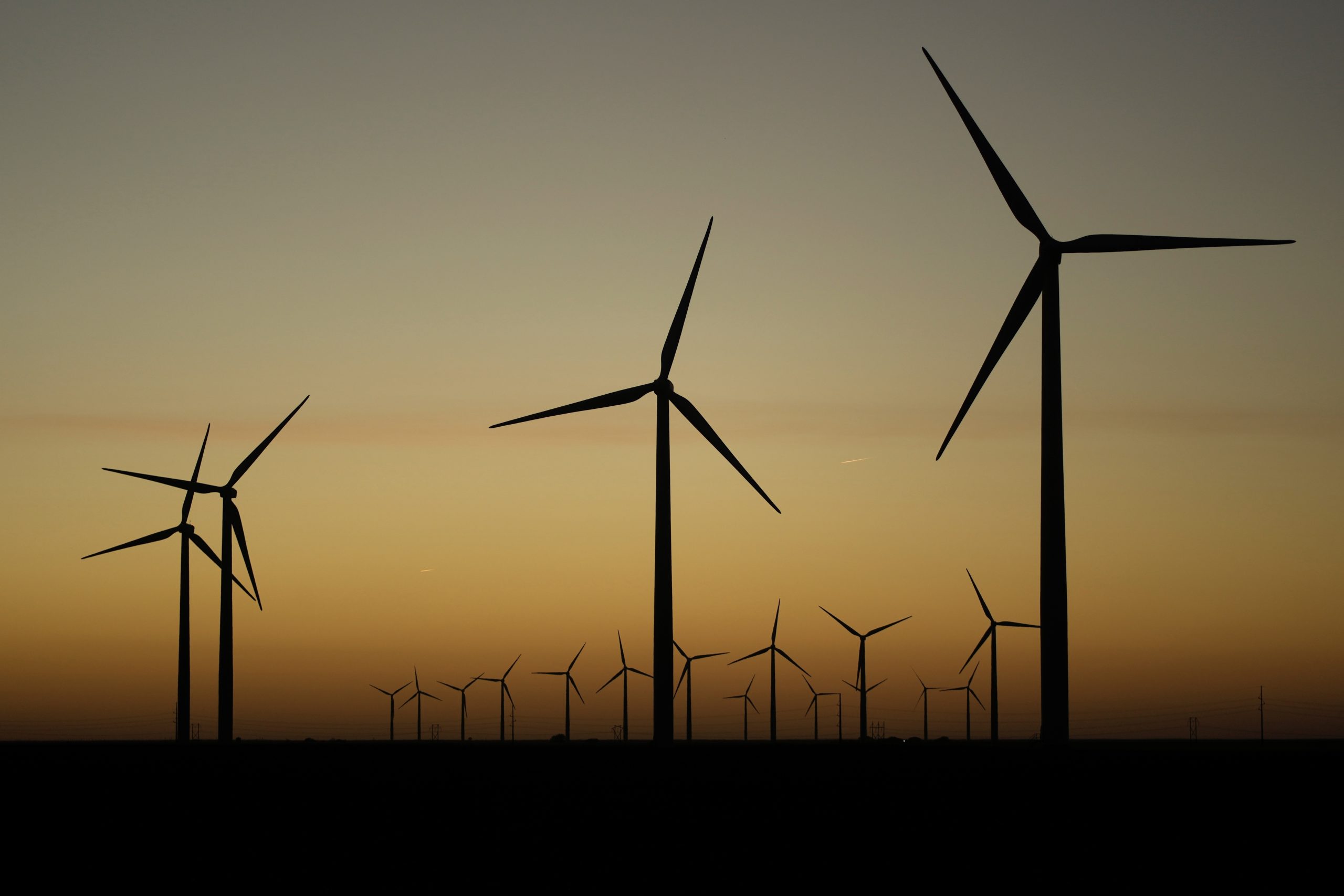By Brian Martucci
Copyright minnpost

The Trump administration’s targeting of clean energy is complicating the path to 100% clean electricity in northern Minnesota.
As of now, Minnesota electric utilities are on track to comply with a 2023 state law requiring them to sell only carbon-free power to customers by 2040. But the road ahead looks more challenging — and more expensive — thanks to Republicans’ rollback of several Biden-era efforts to accelerate the transition from polluting power plants.
The One Big Beautiful Bill, signed by President Donald Trump in July, eliminated or severely restricted hundreds of billions of dollars in federal grants, loans and tax credits for renewable energy and other low- or zero-emission technologies. The administration has also effectively halted once-routine federal permitting for large-scale wind and solar projects and rescinded permits for some previously approved projects.
The federal turmoil comes at a particularly sensitive time for Minnesota Power, the investor-owned utility serving 150,000 customers across northern Minnesota.
Related: Tribal nations scramble to save clean energy projects as federal support vanishes
The Minnesota Public Utilities Commission could vote as soon as next month on a proposed merger between Allete, the utility’s parent company, and an investment group led by a subsidiary of BlackRock, the private equity giant.
Earlier this year, BlackRock lost a $17 billion book of business with a Dutch pension fund that was concerned it wasn’t doing enough to address climate risk. At a news conference last week outside Allete’s downtown Duluth headquarters, DFL State Sen. Jen McEwen and environmental advocates questioned BlackRock’s sustainable bona fides, citing its extensive investments in heavy industry and fossil fuels.
Minnesota Power and its prospective buyers beg to differ. BlackRock and CPP Investments say they have committed nearly $5 billion toward Minnesota Power’s infrastructure plans — support the utility says it needs to meet the state’s carbon-free electricity mandate.
“Advancing the clean-energy future requires significant investment and the long-term, experienced investors we have chosen as partners will give us the access to capital needed for this energy transition,” Minnesota Power spokesperson Amy Rutledge told the Minnesota Reformer last month.
Skeptics say it’s far from certain that the buyers will make good on that promise. A judge warned in July that the new owners could pursue “financial engineering” that weakens the utility’s financial position and its transition plan. And Minnesota Power’s long-range strategy relies heavily on new wind power, the technology hurt most by recent federal policy changes. Meanwhile, the utility proposes adding enough new gas-fired generation to power several hundred thousand homes, a deficit it would need to make up through renewable energy purchases from outside its system — potentially at significant cost to ratepayers.
“We still think, for better or worse, that [wind and solar] will be the cheapest way to build new power generation … but the cheapest way to build new power generation will become more expensive, and that is highly inflationary,” Pete Wyckoff, Minnesota Department of Commerce deputy commissioner of energy resources, said in an interview.
Industrial growth could move the clean electricity goalposts
Minnesota Power already generates 50% to 60% of its power from wind, solar and hydroelectric facilities, up from just 5% in 2005. It aims to meet a state mandate for 80% clean energy by 2030 and hit 90% renewables while phasing out coal by 2035.
In a 15-year resource plan filed with the Public Utilities Commission this year, Minnesota Power proposed adding at least 400 megawatts of wind power and 100 megawatts of energy storage capacity to 700 megawatts of renewable resources already under development. The plan would also add about 1,000 megawatts of gas-fired capacity by 2030 and at least 100 megawatts of industrial demand response — paying energy-intensive customers to ramp down their loads when the grid is stressed.
If industrial customers like taconite mills, lumber processors or a possible data center in Hermantown push power demand higher than expected, Minnesota Power could add up to 1,800 megawatts of additional wind, 200 megawatts of additional energy storage and 200 megawatts of solar.
That “Growth Plan” could serve up to 1,100 megawatts of new load over the next decade-plus, the utility says.
Minnesota Power hasn’t said how much of that load could come from large-scale data centers, but Xcel Energy and the state’s largest wholesale electric cooperative say they expect up to 2,300 megawatts of new data center demand by the early 2030s. Data centers could consume as much 12% of U.S. electricity output in 2028, the U.S. Department of Energy said in December.
“We work closely with all our existing and new customer requests on their upcoming energy needs,” Julie Pierce, Minnesota Power vice president of strategy and planning, said in an email. “[We have] a long history of serving some of the largest industrial customers in the country and Northeast Minnesota would welcome additional industry to locate in this part of the state.”
Even if new industrial demand fails to materialize, Minnesota Power’s heavy reliance on wind power — and, to a lesser extent, solar — looks like a vulnerability these days.
President Trump routinely rails against “windmills,” which he blames for spoiling the view from a golf resort he owns in Scotland. Though he supports carbon-free resources like nuclear and geothermal power, Energy Secretary and former fracking executive Chris Wright is a hardened renewables skeptic who spouts blatant misinformation about solar power and has characterized wind power as a technology in decline despite double-digit global growth.
Minnesota Power is confident it can continue clean energy progress
If Pierce and her team worry that a hostile federal government could derail Minnesota Power’s energy transition plans, they’re not showing it.
“Implementation of new energy projects is a long journey and [we] have a history of navigating permitting and policy changes,” Pierce said.
Minnesota Power has enough capacity to serve customers in the near term and is “committed to meeting the requirements of the Minnesota 2040 law,” she added.
One question the utility will need to answer definitively in the coming years is what to do with the coal-fired Boswell Energy Center, its nearly 1,000-megawatt Iron Range workhorse. Its latest resource plan calls for adding an 85-megawatt solar array in the next few years, converting the smaller of its two operating units from coal to gas by 2030, and developing non-coal options for the larger unit by 2035.
That could mean a range of “firm” carbon-free power sources, such as enhanced geothermal, gas with carbon capture technology, long-duration energy storage and advanced nuclear, Minnesota Power says.
Utilities elsewhere are bullish on small modular reactors, which proponents say are safer and cheaper to deploy than conventional large reactors like those at Xcel’s Prairie Island and Monticello power plants. Boswell is one of hundreds of aging coal power plants in the United States, most of which the U.S. Department of Energy says could feasibly host small nuclear reactors.
Related: BlackRock’s bid for Minnesota Power worries consumer advocates
“Minnesota Power supports an all-of-the-above energy strategy and is pleased to see the progress being made [on small reactors] … we look forward to learning more as the critical first implementations of this technology are completed,” Pierce said.
Efforts to lift Minnesota’s moratorium on nuclear power development face an uphill climb in the state legislature. The biggest hang-up is the complicated legacy of the “temporary” nuclear waste storage facility on the Prairie Island Indian Community’s doorstep that has effectively become permanent.
State leaders who otherwise support clean energy are skeptical that advanced nuclear will help Minnesota utilities decarbonize by 2040. The most recent U.S. commercial nuclear project took more than a decade to build and ended up billions of dollars over budget, DFL Rep. Larry Kraft noted in an interview.
“Even if things go well, it’s not going to help us for 10 years, and we need to largely decarbonize by then,” Kraft said. “People place too much emphasis on that discussion.”
All roads run through North Dakota?
Among the dozens of Trump administration executive actions that could complicate Minnesota Power’s path is a sweeping July order that requires Interior Secretary and former North Dakota governor Doug Burgum to personally approve permit applications on federal lands. Experts say the order is broad enough to hinder many projects on private lands.
Bergum’s home state got 36% of its electricity from wind in 2023. It’s home to much of Minnesota Power’s existing renewables, which power Minnesota via a 465-mile transmission line. North Dakota is also where the utility hopes to energize a new, 200-megawatt wind farm in about two years.
That project, called Longspur Wind, is “midway through its permitting process with state and local agencies” and positioned to meet the deadline to qualify for federal clean energy tax incentives, Pierce said. Those incentives could reduce the net cost of its power by 2.75 cents per kilowatt-hour, or about 15% of the average retail power price paid by Minnesota customers.
Minnesota Power’s close working relationship with state and local officials in North Dakota should work to its benefit as it seeks approval for Longspur, Kevin Pranis, marketing manager for the Minnesota and North Dakota chapter of the Laborers’ International Union of North America, said in an interview. LIUNA members build and operate power plants for utilities across the Upper Midwest, including Minnesota Power.
“Allete has been doing business in North Dakota for years, so it helps to be a known quantity,” he said. In an ironic twist, Pranis said that good will stems in part from Allete’s ownership of BNI Energy, a North Dakota-based coal miner.
But Longspur could be a rare bright spot in a more challenging environment for renewable energy development toward the end of the decade.
“We think we have a busy two years of projects, but after that it’s less clear,” Pranis said, citing the loss of federal tax incentives and the “weaponization of the permitting process.”
“If your construction start is more than three years out, you’re working through some big questions,” he said. Still, “with our [climate] goals in Minnesota, we’re just going to keep rolling ahead.”



